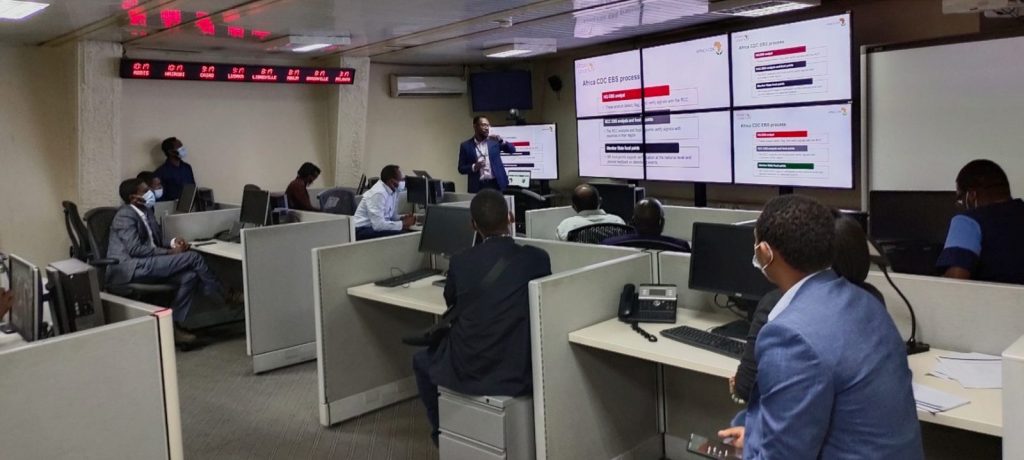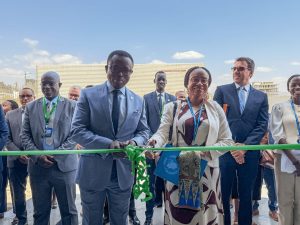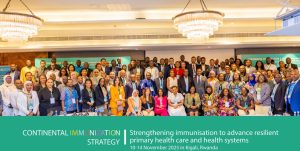Context
Combating the several public health threats across the African continent requires adequately trained and equipped workforce.
Africa Centres for Disease Control and Prevention (Africa CDC) has called for a new public health order that includes workforce development, suitably aligned with the vision of the African Union (AU) and its desire to build capacity in public health through medium- and long-term training in identified areas of need.
The commencement of the Africa CDC Public Health Emergency Management (PHEM) fellowship will carter for the dire need of skilled workforce to lead and manage emergency management programs that includes timely detection and response to emergencies when they occur.
Goal: To develop a cadre of African public health workforce who are highly skilled to coordinate and lead preparedness and response to public health emergencies in Africa.
• Provide fellows up-to-date knowledge regarding public health emergency management and Public Health Emergency Operations Centers (PHEOCs)
• Provide fellows in-depth exposure to the role of PHEOCs in preparing for and responding to various public health emergencies
• Building the skills of fellows in managing the various functions of PHEOC, and leading the response to public health emergencies
• Institutionalize a sustainable program for PHEM in the African continent
A. Fellowship Design Principles
The fellowship design considers the phenomenal nature of public health emergencies in the continent and the world’s collective risks which could trigger large scale disruptions with albeit, impact the fellowship.
- Fellowship Resilience: Fellowship curriculum designed to ensure Fellows are deployable at any point of the fellowship, should there be a major public health event. Fellowship faculty will continually explore opportunities for broadening funding streams, with an institutional base funding.
- Industry-savvy: Curriculum designed to serve the most complex emergency situations and delivered by experienced training faculty. Fellows empowered to serve at strategic, operational and tactical levels.
- Scalable and adaptable Model: As a sustainability strategy, an accountability framework is built to ensure continuous expansion and guarantee strides and lessons are easily replicable at regional, national and sub-national levels.
- Leverage on existing systems: Fellowship goal fits into the broader goal of Africa CDC’s workforce development strategy as a component of the Africa CDC New Public Health Order driven by the desire to fulfill the Africa Union’s 2063 Agenda.
- Continuous improvement: Fellowship will pragmatically self-evolve into an institutional flagship program, putting in place monitoring and evaluation processes that link accountability mechanisms and operational decisions to feedback from participants, AU member states and technical partners.
B. Fellowship Description
Overview
The PHEM Fellowship will target mid-career African public health professional with experience managing PHEOCs or leading emergency preparedness and response programs drawn from African Union member states. The Fellows shall be taken through a standardized training, mentorship, hands on experience, and technical assistance program leveraging on the PHEM Fellowship design of the US-CDC. During the training, fellows will receive specialized training in public health emergency management functions and
operations, participate in study tours, work within Africa CDC EOC, take part in public health exercises and responses and receive guidance from global specialists in emergency management. Upon completion and return to home countries, fellows will be expected to facilitate the expansion of public health emergency management programs within their home countries and take up leadership and advisory roles in public health emergency management programs.
Fellowship Structure
The PHEM fellowship will run for 24 weeks (six months). It will include eight weeks of in-person training at the Africa CDC’s headquarters in Ethiopia. During this period, Fellows will equally be matched with experienced mentors and coaches to support their continued learning experience. Fellows will then be deployed to PHEOCs across Africa including the Africa CDC PHEOC for eight weeks. The next four weeks will be spent on study tours, with each fellow getting a chance to visit one PHEOC within Africa and one outside Africa.
To roundup the program, the final four weeks will be spent on didactic learning, project completion and final graduation.
For more information, please Download the Prospectus.







